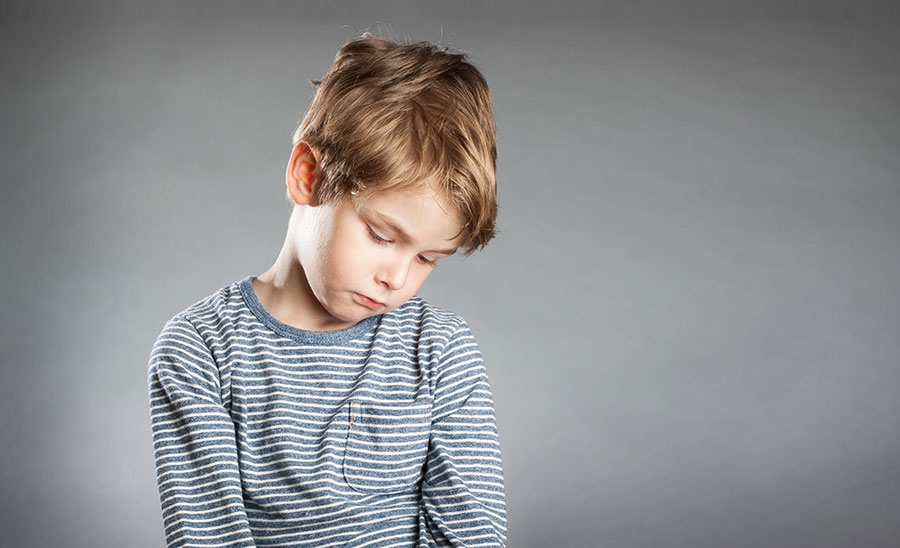Helping grieving children
It’s important to allow kids to grieve in a way that helps them heal.
Story: Edy Nathan
Parents of grieving children often feel at a loss as to how to help. Here are the top “do’s and don’ts” to understand the children’s grief process and learn how to help them through it.
5 things to help grieving children cope
- Allow the child to show they are in an active state of mourning and give them permission to do it their own way.
- Ask a lot of questions, but with care. Make questions unobtrusive and paced. Once the question has been posed, patiently wait for a response. Allow children to process questions in their own time.
- When children lose a parent, sibling, or anyone dear to them, they will ask questions about death. Answer them as honestly as you can but respond appropriately for their age.
- If the family is suffering from the loss of a loved one, often children experience the loss of attention from grieving parents. Though it is difficult to put grief aside, remember children are vulnerable and take cues from the way the caregiver copes with the loss.
- In every loss, there is a birth. In the moment of the active state of mourning, it is very difficult to imagine there could be something empowering about the loss. Often, children become more inventive or better at sports or more insightful when they have lost a loved one or a pet.
5 ways that don’t help grieving children cope
- Time for mourning: Since grief is individual to everyone, children will not grieve the way the parents grieve. If you see them playing, don’t stop them, as they may be working out some of their grief in their language or comfort zone.
- The truth, please: Saying “Daddy is in a very restful sleep” or “You will see your dog in your dreams” implants a false belief that may cause undue stress and fear for your child. No matter how old your child is, using metaphors for death that liken it to sleep creates a fear of sleep. This can lead to anxiety and depression for children.
- Children need to be children: It is often a knee-jerk reaction to the loss of a parent to “adultify” the children in the house. Expecting them to take on adult responsibilities creates a role for the child they need not have. Let them be children and give them age-appropriate responsibilities, though not given as a response to the loss.
- Hide and seek—the game of grief: The phases of mourning come to you, rather than you seeking them out. When in the state of grief, children may have outrageous responses to simple situations and stimuli. Put punishments aside for now and allow backward movement if it occurs. If you normalize the reactions, the child will reenter their appropriate developmental phase.
- Go for a group: Children often cope with their losses when they are exposed to other kids who have had a similar loss. Local houses of worship, YMCAs, hospice centers, and even family clinics often offer grief support groups for children of all ages. This is not about you; it is about helping your child cope with loss.
About the writer → Edy Nathan is a New York-based, licensed psychotherapist with more than 20 years of experience specializing in the integration of psychotherapy and the world of spirituality.
Professional grief support: Cornerstone Hospice and Palliative Care
Cornerstone Hospice and Palliative Care, with locations in Lake and Sumter counties, is especially attuned grieving children. Its services are age-designated and provide a safe place for a child to grieve and heal, according to its website.
Sand Tray and Play Therapy
Though this therapy can be used with adults, teens, and groups, it works well with children. It allows the child to be in a safe, protected place to create whatever the imagination finds with sand, water, and miniature objects. A trained therapist supervises. There is no right or wrong way to use the sand, and the child determines the path of the play.
Camp Bridges
Children under the age of 13 who have been in the bereavement counseling program at Cornerstone Hospice can enjoy an overnight camping experience. This gives them a connection with other children who have lost loved ones. The healing environment includes meaningful activities related to the child’s loss but also allows for fun.
Camp Adventure
This three-day/two-night camping outing is for teens who participated in the bereavement counseling program. It removes daily peer pressure and lets them lower their guard while bonding with teens experiencing the same loss as they have. Grief and loss themes are used in conjunction with survival activities.
*For information on bereavement activities or therapies offered by Cornerstone Hospice and Palliative Care, email bereavement@cshospice.org.

